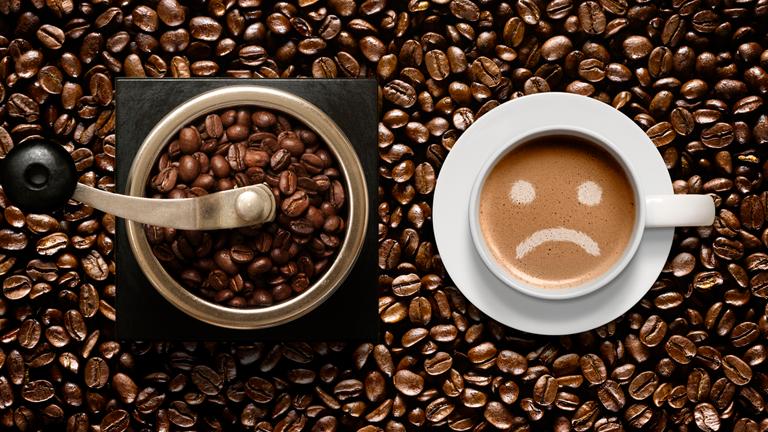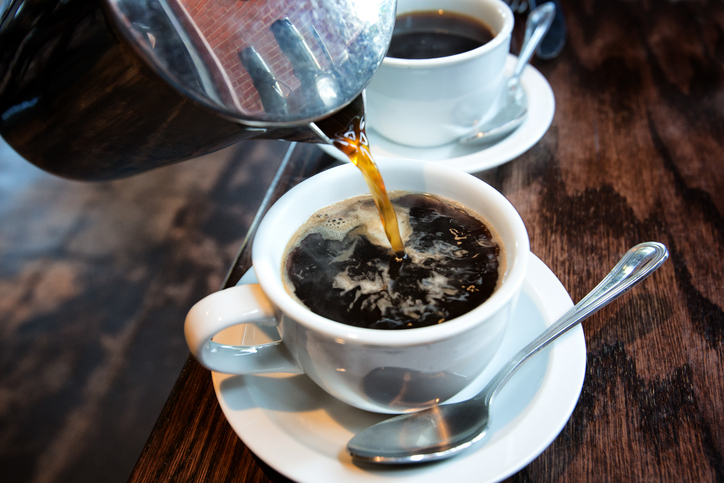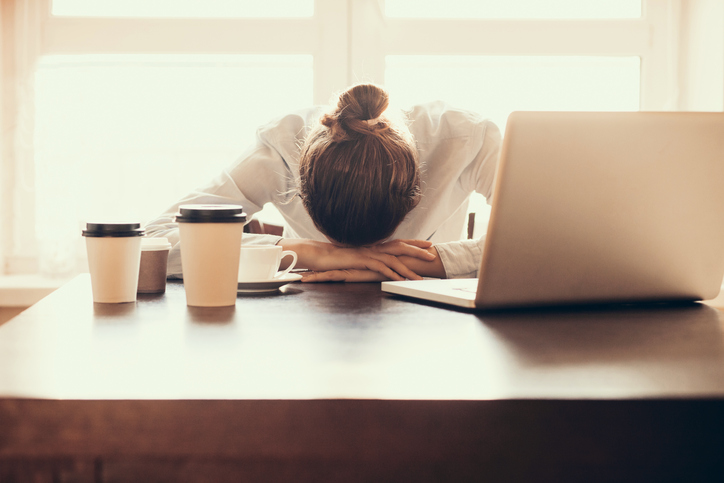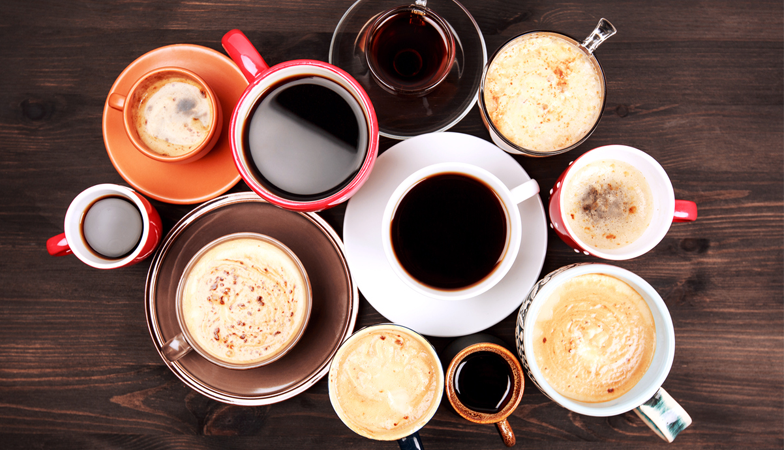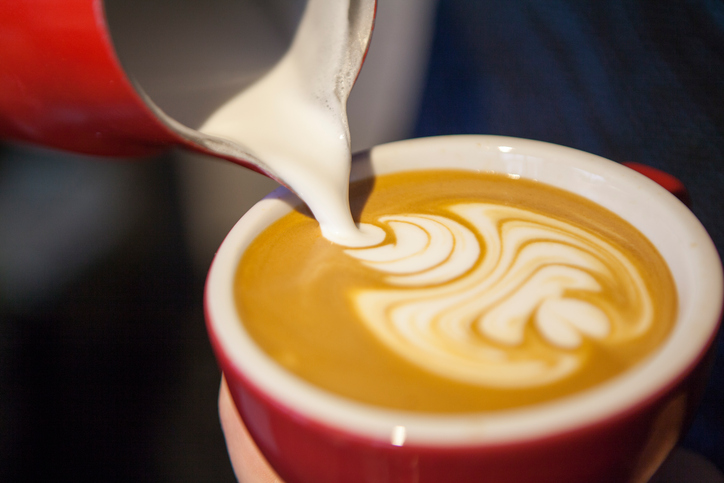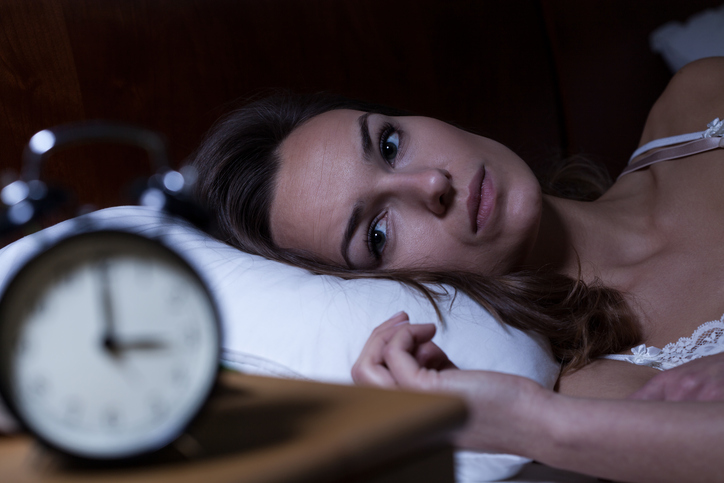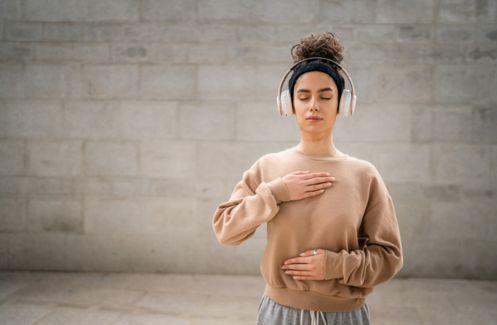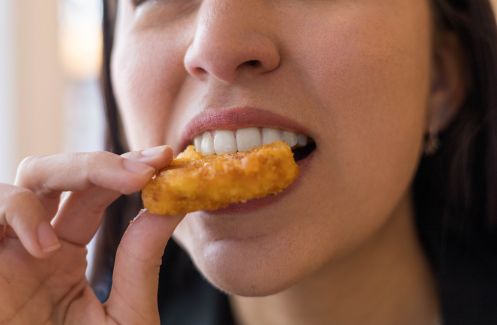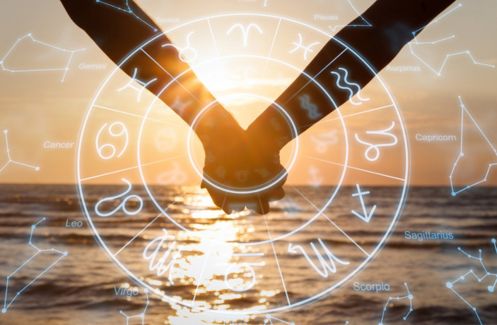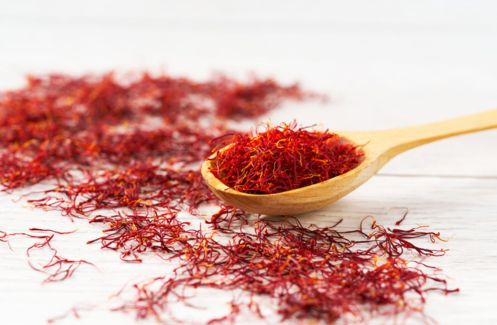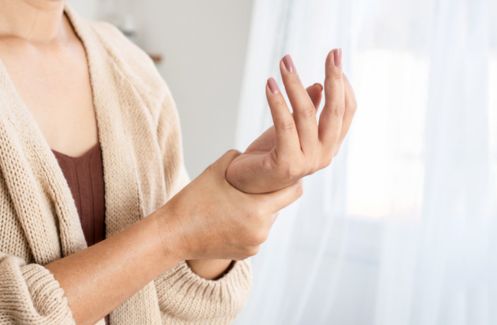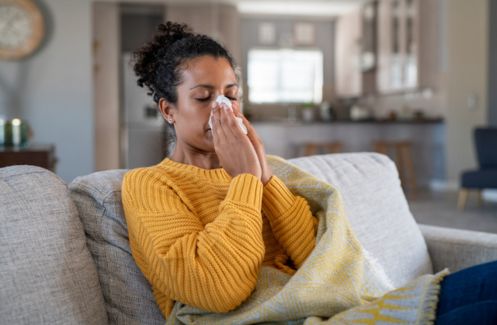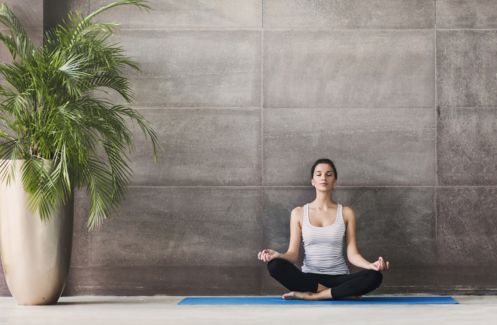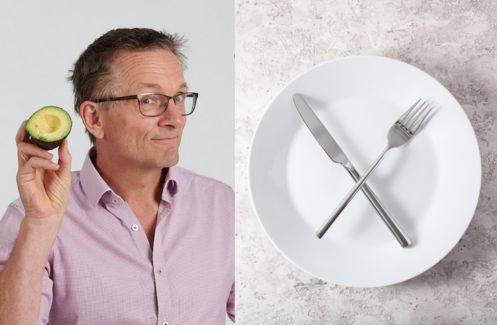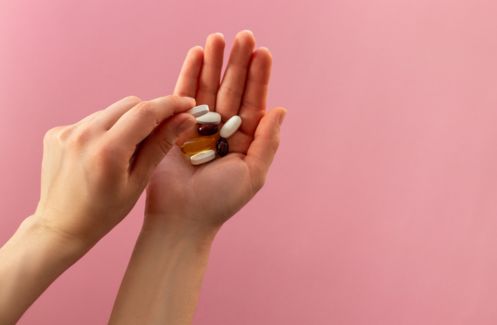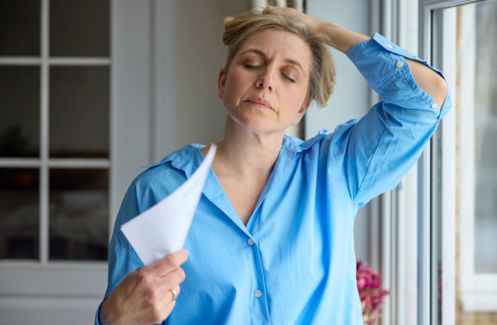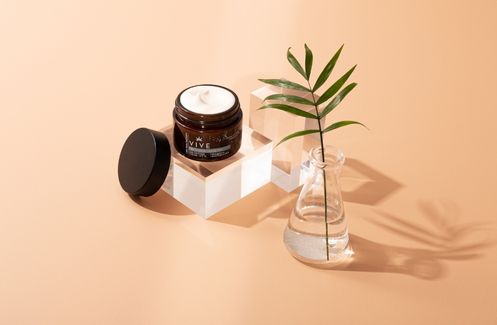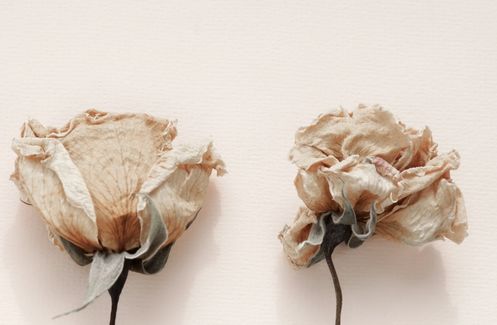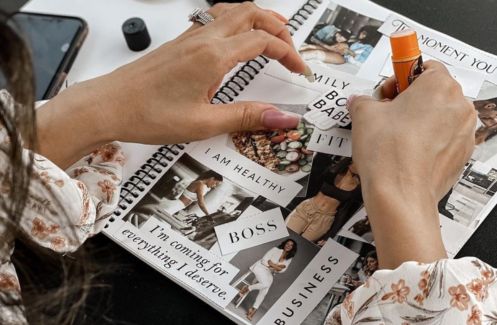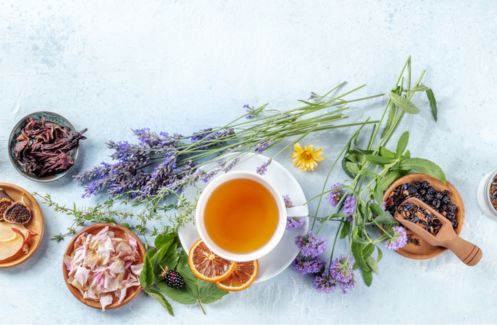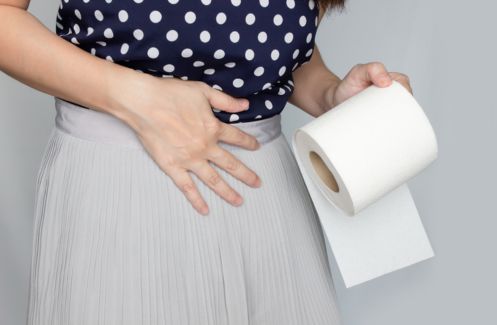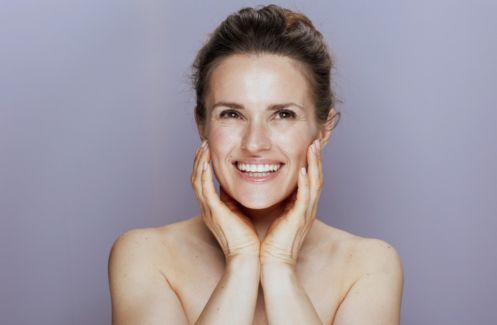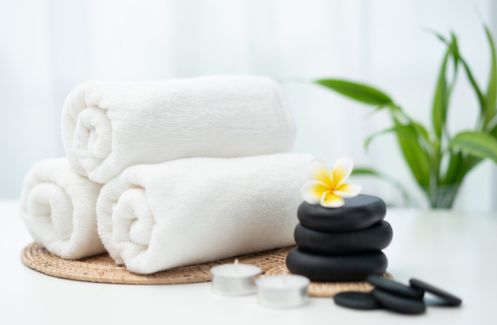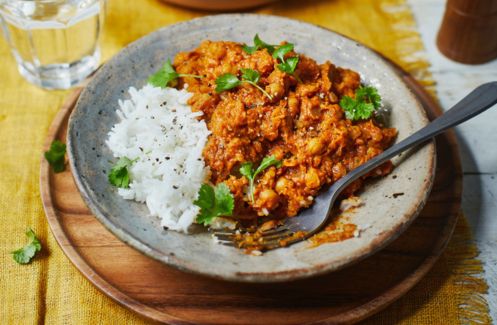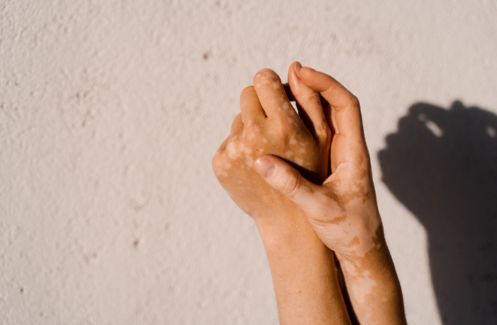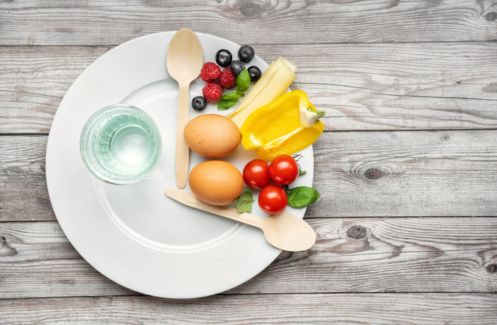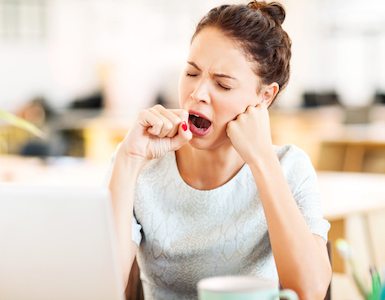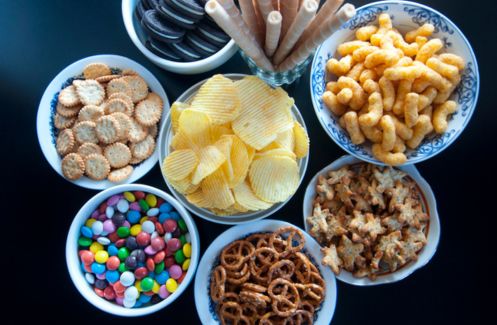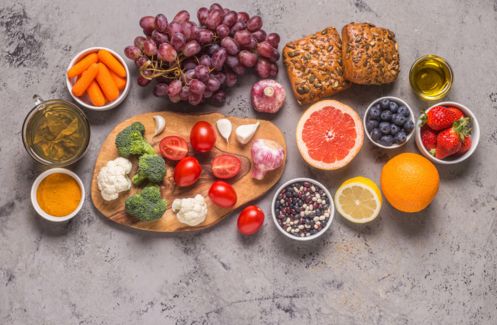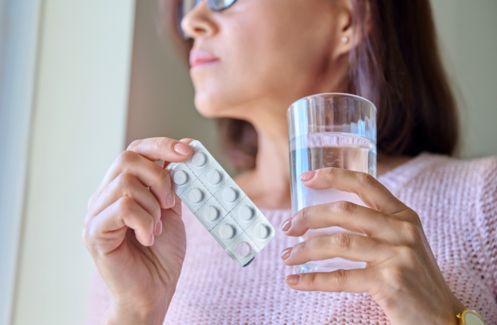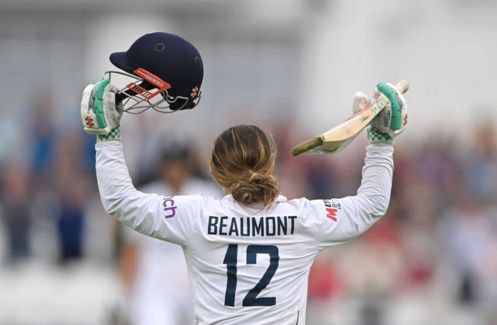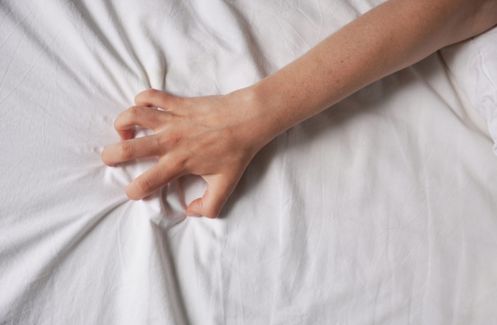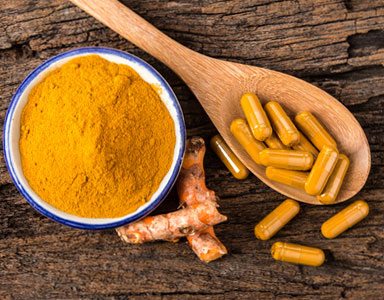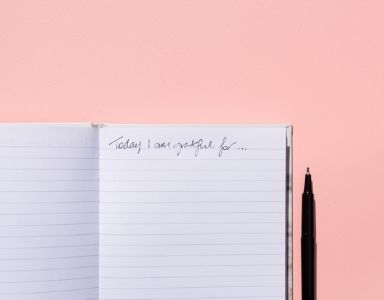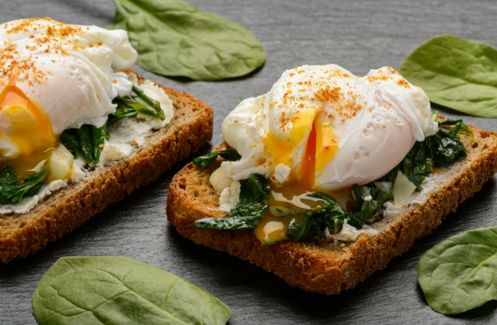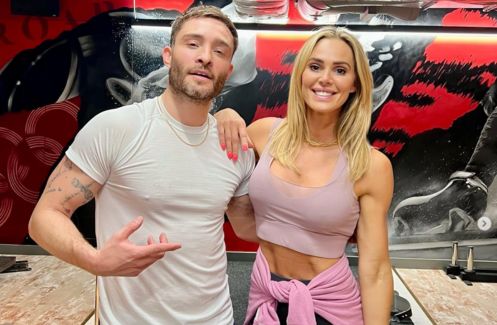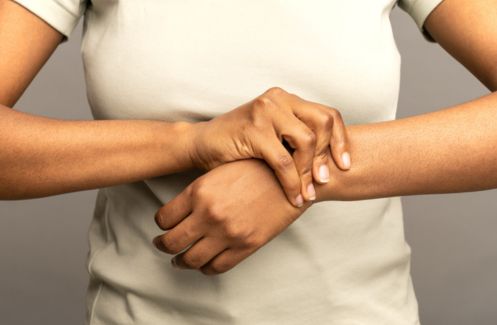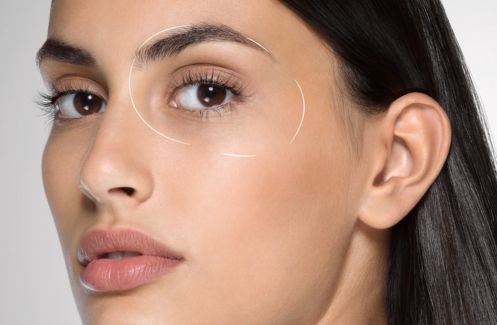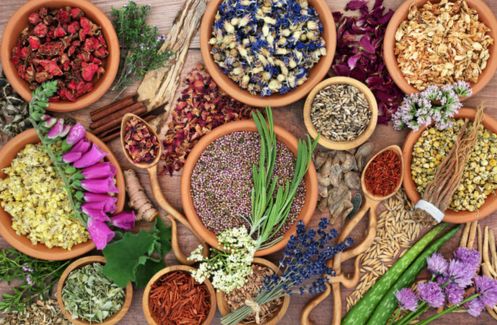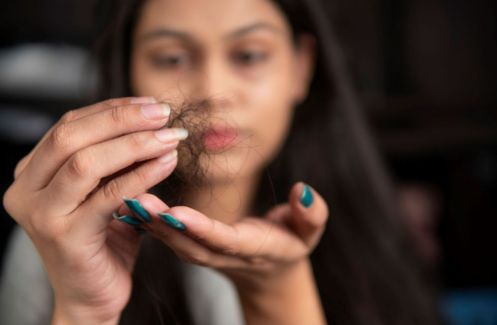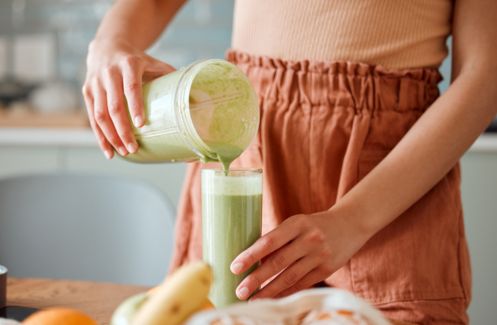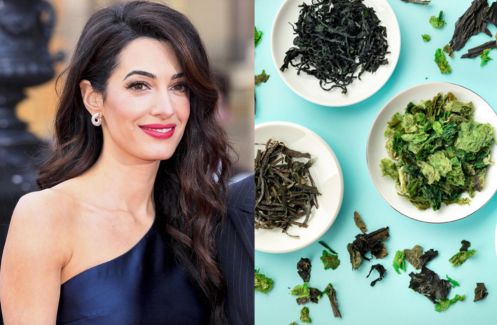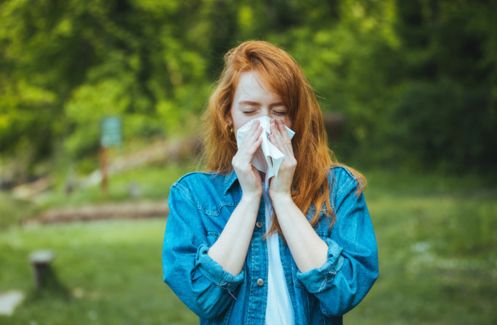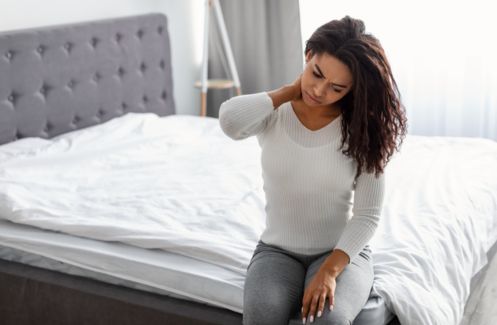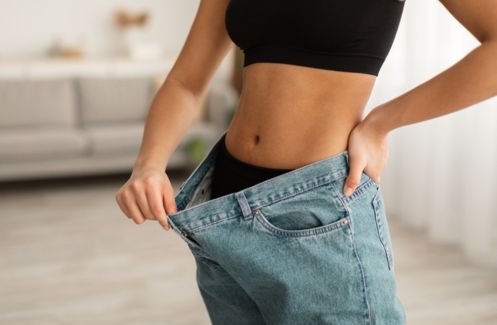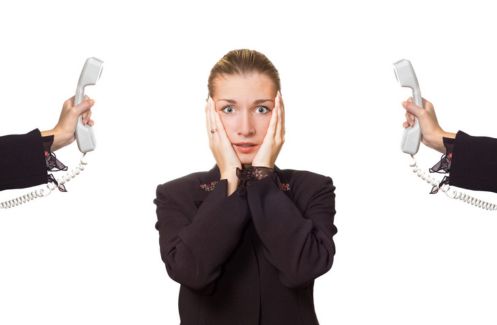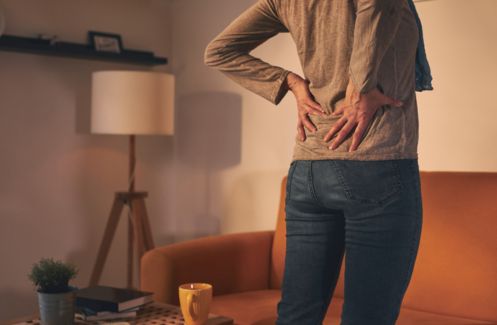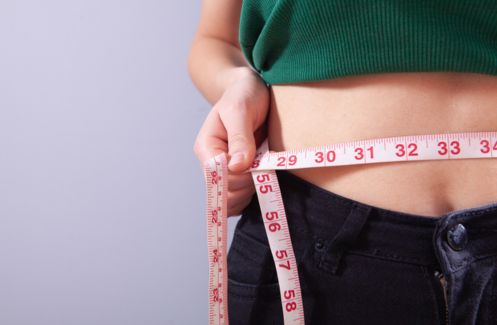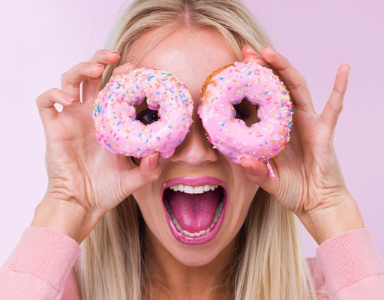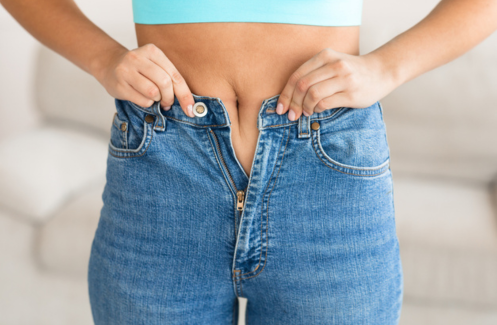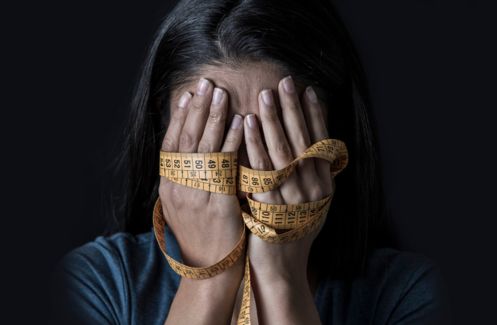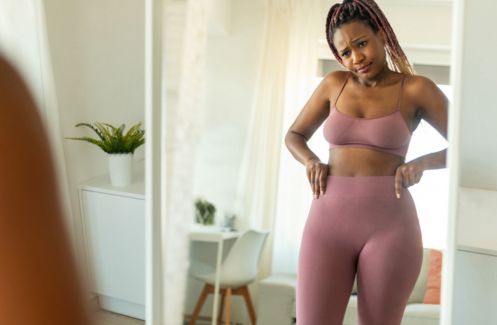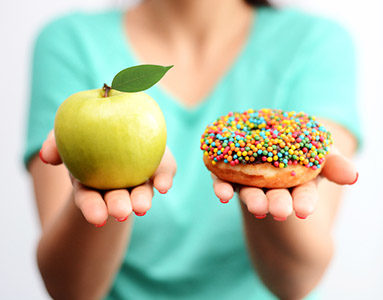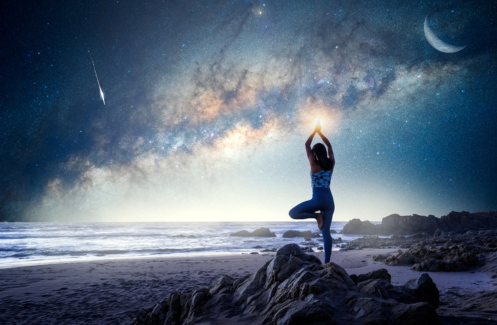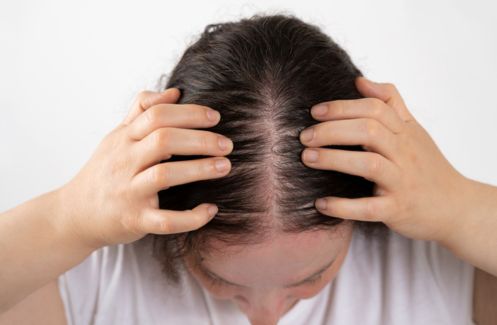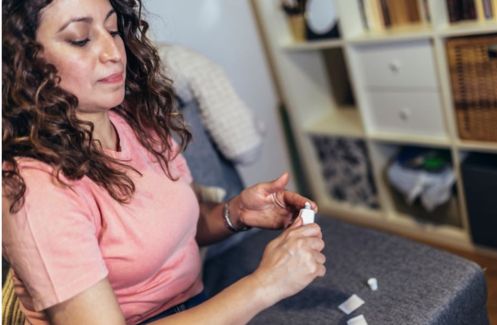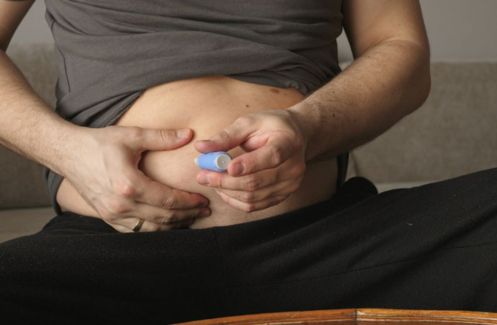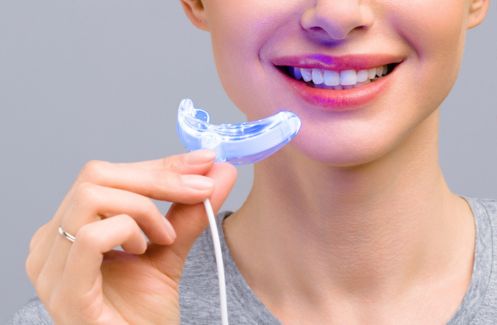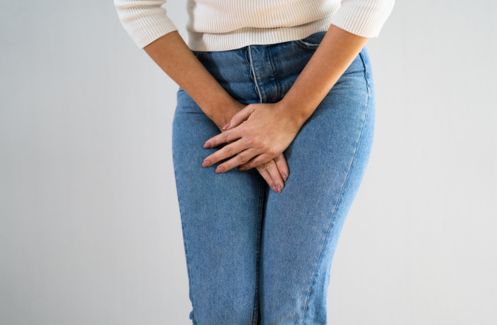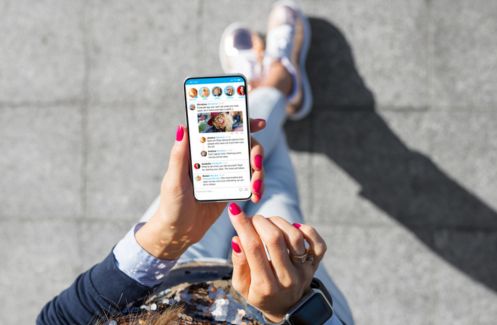A boy has died after consuming three caffeinated Red Bull drinks. While that’s extreme, it did make us wonder about the effects of drinking coffee, especially on our everyday moods. Nutritionist May Simpkin has something to say about that
It’s a harmless indulgence for most of us, but it seems caffeine has a dark side. A 16-year-old boy, Davis Allen Cripe has died from drinking three caffeine-laden drinks, including coffee and an energy drink, a South Carolina coroner said on Monday.
A question I am often asked and one that is still subject to confusion due to the conflicting advice we are bombarded with is ‘Should I drink coffee?’. The ‘coffee experience’ has become a part of modern life and culture and indeed an enjoyment whether gathering with friends or when you’re at a point in the day when you’re in need of a boost. But is it really doing you good or worse, could it be causing you harm?
MORE: 5 lunch swaps – Britain’s worst lunch choices made healthier
First the good news. There is a growing body of research, including a recent systematic review at Ulster University, suggesting that the potential benefits of moderate coffee drinking per day could outweigh the risks in adults, including lowering risks for cardiovascular disease, cancer and gastrointestinal conditions. Whilst this is reassuring, the focus here is on the word ‘moderate’ which allows for a generous 3-4 cups a day (about 100 mg of caffeine per cup). Still, David Allen Cripe’s experience suggests we should think twice about it.
Caffeine is a stimulant that will induce a stress response, releasing the stress hormone Cortisol, which in turn releases sugar into the blood
The tolerance for coffee will vary from person to person and some may even enjoy certain health benefits, in light of what happened in South Carolina, it is at least worth pointing out some of the ways caffeine can mess with your head.
You crash
A good mood and sustained energy are about avoiding blood sugar spikes as these are always followed by the inevitable dips (I.e feeling like cr*p, being tired, lashing out, or wanting to fall asleep at the photocopier). That’s why nutritionists are always banging the ‘balancing blood sugars’ drum as that’s the foundation of a healthy diet. Avoiding the triggers that result in these surges and dips that cause symptoms such as anxiety, dizziness and cravings.
Caffeine is a stimulant that will induce a stress response, releasing the stress hormone cortisol, which in turn releases sugar into the blood. Although you will enjoy a short-term energy boost, your body quickly registers no actual energy requirement whilst drinking this coffee and therefore no requirement for this sugar. Insulin is then released to remove the sugar and you will soon be left feeling tired, lethargic and sleepy (probably the moment you snap at an innocent bystander, get overwhelmed by an email you’d normally take in your stride or lose the plot with a colleague). Over time, the sensitivity to insulin decreases, increasing your risk of developing Type 2 Diabetes. Don’t forget,, all sugars will act as triggers in the same way, so consider removing all refined sugars as well as reducing caffeine and alcohol, replacing with more complex choices such as whole grains, vegetables and herbal teas.
You’re tired
Caffeine is supposed to keep you alert and focused but in the long term it could be making you more tired and drained by starving your body of nutrients. Coffee is a diuretic and you may find you are going to the loo more often, the more coffee you drink. At the same time, you will be excreting important minerals such as calcium, magnesium and potassium, which can result in an electrolyte imbalance. Caffeine also stimulates bowel contractions, possibly encouraging waste to be eliminated faster than normal, with less time for nutrients to be absorbed as it passes through the digestive tract. Over time, this can lead to further complications within the body including tiredness, irritability and bad sleep (see below) to name just a few.
a midday caffeine boost is not as powerful as walking up and down the stairs, for just 10 minutes
You’re actually addicted
Reasons for drinking coffee will vary from person to person and indeed the more coffee you drink, the more you may find that you are relying on coffee to provide an energy boost to spur you on during the day. Interestingly, research from the University of Georgia has emerged that suggests that a midday caffeine boost is not as powerful as walking up and down the stairs, for just 10 minutes. It’s certainly an option if you work in an office building with stairs and have little time for exercise. Better still, if you can manage around 20-30 minutes of walking in the fresh air each day, you will feel naturally energised and enjoy further benefits.

You’re sleep deprived
Despite all the positive research, there is little dispute that coffee, as a stimulant, does disrupt sleep, to varying degrees depending on your sensitivity. It is worth avoiding drinking coffee for 4-6 hours before going to bed, preferably longer. Staying hydrated ideally with water throughout the day will help alleviate any symptoms of withdrawal, so make sure you drink at least 6-8 glasses of water or herbal teas, which are an ideal alternative.
Can’t give up? Here’s how to have it healthily
What’s a healthy limit? In terms of caffeine, we should limit our intake to a maximum of 400mg per day. A typical 250ml serving of filtered coffee contains an average of 100mg of Caffeine whilst a single 30ml espresso contains an average of 65mg, depending on the roast and type of bean. Instant coffee usually contains less caffeine whilst decaffeinated coffee is not always entirely caffeine free and can contain about 3mg of caffeine in a cup.
How should I take it? The coffee industry has carefully orchestrated our attitudes towards coffee drinking. As such, we have normalised the consumption of a warm, frothy, milk-laden sugary latte, which in terms of calories, is almost a meal in itself and yet the epitome of an energy-dense ‘food’ that is lacking in significant nutritive value. As our habit for drinking coffee increases, so does our calorie and caffeine intake. One latte can contain up to 170 calories if made with whole milk. However, conversely, a (black) coffee can also act as a mild appetite suppressant, which may help to get you through to your next meal. Opt for an Americano, espresso or a “dry” cappuccino to at least reduce the calorie burden of your morning coffee.
If you find you’re relying on your coffee when you’re hungry, try to consider an alternative and make a healthy food choice instead
What can I have instead? If you find you’re relying on your coffee when you’re hungry, try to consider an alternative and make a healthy food choice instead, for example, a piece of fruit with a small handful of nuts/seeds or a vegetable based soup, alongside a herbal tea. Green tea has less caffeine than a cup of coffee, which can be enough to provide the boost you need whilst also providing powerful antioxidants and the boost is less of a spike so you don’t get a subsequent crash. Rooibos tea is refreshing and full of flavour and doesn’t contain caffeine, it’s absolutely gorgeous with a little almond milk and could almost be a Builder’s brew.

leading nutritionists
May Simpkin is a UK qualified Nutritional Therapist with a Masters Science degree in Personalised Nutrition. She is an experienced clinician, practising functional medicine from an evidence base, providing the latest research into nutrition. She is a registered practitioner, bound by the code of ethics in clinical practice and has met the strict criteria required for BANT, the British Association for Applied Nutrition and Nutritional Therapy and the CNHC, Complementary and Natural Healthcare Council, which is the council recommended by the UK Department of Health for complementary and natural healthcare services. She is also Chair of the Continual Professional Committee at BANT. In addition, she is registered withAFMCP, The Institute for Functional Medicine – Applying Functional Medicine in Clinical Practice™ and a member of the RSM, The Royal Society of Medicine.
For more information on how to lose weight, nutrient-rich recipes, and ideas visit www.maysimpkin.com or Follow May on Instagram: @maysimpkinnutrition or Twitter @MaySimpkin
Read more
4 reasons you’re not losing weight on a vegan diet
8 foods that burn fat already in your kitchen
5 reasons you haven’t lost your baby weight
Like this article? Sign up to our newsletter to get more articles like this delivered straight to your inbox.



